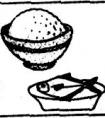Read and write,按要求完成句子。1.I write you a letter.(同义句)I write a letter ____you.2.I write my name at the bottom.(对划线部分提问) ____________ do I wr-五年级英语
题文
| Read and write,按要求完成句子。 |
| 1.I write you a letter.(同义句) I write a letter ____you. 2.I write my name at the bottom.(对划线部分提问) ____________ do I write my name? 3.I put it in an envelope.(改为现在进行时) I________ ________ it in an envelope. 4.Danny needs a stamp.(改为否定句) Danny _______need a stamp. |
答案
| l. to 2. Where 3. am putting 4. doesn't |
据专家权威分析,试题“Read and write,按要求完成句子。1.I write you a letter.(同义..”主要考查你对 特殊疑问句,介词,现在进行时,现在分词,否定句 等考点的理解。关于这些考点的“档案”如下:
特殊疑问句介词现在进行时,现在分词否定句
考点名称:特殊疑问句
- 特殊疑问句:
以特殊疑问词开头,对句中某一成分提问的句子叫特殊疑问句。
常用的疑问词有:what、who、whose、which、when、where、how、why等。
特殊疑问句往往是就其中的某一成分,进行提问,而且根据情况直接回答,不能用yes或no简单回答。
常见的疑问代词有who, whose, which, what;疑问副词有when, where, why, how。
例:What do you do on Sunday? 你周日的时候干什么?
Which class are you in? 你在哪个班?
Where does Mr. Li live? 李先生住在哪?
Why are you late? 你为什么迟到? 特殊疑问句的构成:
一、 特殊的疑问词。
特殊疑问句要由疑问代词或疑问副词开头,询问的内容不同, 使用的疑问词也不同。
我们学过的疑问词有:
what(询问事物), how much(询问价格),what time (询问时间,尤其是点钟), what kind of(询问种类),why(询问原因),who(询问人), where(询问地点) 等等。如:
—What is this? 这是什么?
—It's a key. 这是一把钥匙。
—How much is it? 这个多少钱?
—It's twenty dollars. 二十美元。
—What kind of movies do you like? 你喜欢哪一类型的电影?
—I like action movies. 我喜欢动作片。
二、特殊的语序。
特殊疑问句由疑问词开头,其构成是“疑问词 + 一般疑问句”。如:
What time is it? 现在几点钟?
Who is your teacher? 谁是你的老师?
三、特殊的答语。
特殊疑问句不能用yes, no来回答,而应根据它所询问的内容直接做出回答才行。如:
— What time is it, please? 请问几点了?
— It's 7:30. 七点半了。
— Where are they? 他们在哪儿?
—They're in the playground. 他们在操场上。
—What's your favorite subject? 你最喜爱的科目是什么?
—English. 英语。
四、 特殊的语调。
一般情况下,特殊疑问句要用降调(↘)来读。如:
Who's ↘that?
How old is↘Jack?特殊疑问句有两种语序:
1.如疑问词作主语或主语的定语,即对主语或主语的定语提问,其语序是陈述句的语序:
Who is singing in the room﹖
whose bike is broken﹖
2.如疑问词作其他成分,即对其他成分提问,其语序是:
特殊疑问词+一般疑问句【特殊疑问词+be/助动词/情态动词+主语+谓语】
What does she like?
What class are you in﹖
Where are you from﹖
What time does he get up every morning﹖
How do you know﹖- 就划线部分提问的基本方法:
小学对特殊疑问句的考查主要采取对划线句子提问的方式,那么在句型转换就划线部分提问的基本方法是:
先根据划线部分词语的意思和句法功能确定用什么疑问词;
然后将原句变为一般疑问句跟在疑问词的后面即可(注意去掉划线部分)。
基本构成:疑问词+一般疑问句
A、对“物”划线用What。
This is an orange. → What is this?
We can see a cat under the desk. → What can you see under the desk?
B、对“地点”划线用Where,如果“地点”作定语时,用Which后跟被修饰的那个名词。
He is under the tree. → Where is he?
Jenny is in the classroom. → Where is Jenny?
C、对“年龄”划线用How old。
Miss Li is twenty-three. → How old is Miss Li?
My sister is five years old. → How old is your sister?
D、对“颜色”划线,用What colour。
Her sweater is red. → What colour is her sweater?
E、对“可数名词的数量”划线用How many +复数名词。
She has one red coat. → How many red coats does she have?
I have six books. → How many books do you have?
F、对“不可数名词的数量”划线用How much+不可数名词。
I want to buy three kilos of meat. →How much meat do you want to buy?
G、对“职业”划线用What。
She is a driver. → What is she?
My father is a farmer. → What is your father?
H、对“星期几”划线用What day。
It's Sunday today. → What day is it today?
I、对“时间”划线用What time。
We go to school at seven in the morning. → What time do you go to school in the morning?
It is five o’clock now. → What time is it?
考点名称:介词
- 介词:
是用来表示它后面的名词(代词)或起名词作用的短语、从句与句中其他成分之间的关系。
介词是英语中很活跃的词,一般置于名词之前。它常和名词或名词性词语构成介词短语。
同一个介词常和不同的词语搭配形成固定搭配,表示不同意义。 介词分类:
一、表示地点位置的介词
(1)at, in, on, to, for
at 表示在小地方;表示“在……附近,旁边”。
in 表示在大地方;表示“在……范围之内”。
on 表示毗邻,接壤,“在……上面”。
to 表示在……范围外,不强调是否接壤;或“到……”。
(2)above, over, on 在……上
above 指在……上方,不强调是否垂直,与below相对;
over 指垂直的上方,与under相对,但over与物体有一定的空间,不直接接触。
on 表示某物体上面并与之接触。
例:The bird is flying above my head. 小鸟在我的头上飞。
There is a bridge over the river. 在河上有一座桥。
- 最新内容
- 相关内容
- 网友推荐
- 图文推荐
| [家长教育] 孩子为什么会和父母感情疏离? (2019-07-14) |
| [教师分享] 给远方姐姐的一封信 (2018-11-07) |
| [教师分享] 伸缩门 (2018-11-07) |
| [教师分享] 回家乡 (2018-11-07) |
| [教师分享] 是风味也是人间 (2018-11-07) |
| [教师分享] 一句格言的启示 (2018-11-07) |
| [教师分享] 无规矩不成方圆 (2018-11-07) |
| [教师分享] 第十届全国教育名家论坛有感(二) (2018-11-07) |
| [教师分享] 贪玩的小狗 (2018-11-07) |
| [教师分享] 未命名文章 (2018-11-07) |

![—? —There'sabedandtwoendtables.[ ]A.WhatcanyoudoB.What'sintheroomC.Whereistheroom-五年级英语](http://www.00-edu.com/d/file/ks/4/1/66/2019-09-01/small99905fb6cf464b2289a7b5ecf53245d41567347804.gif)
![[ ]A.What'sthetime,please?B.Howareyou?C.What'stheweatherliketoday?-六年级英语](http://www.00-edu.com/d/file/ks/4/1/66/2019-09-01/small942a3cf2b2278a48405f5dd91a959cc01567346776.jpg)


![[ ]A.He'sathome.B.Hisnameispeter.C.It'snotmine.-六年级英语](http://www.00-edu.com/d/file/ks/4/1/66/2019-09-01/small91adfc04a7bf83aa6595e05e37cf44bf1567346766.jpg)
